Congratulations to SBS Teaching Award Winners, Spring '22
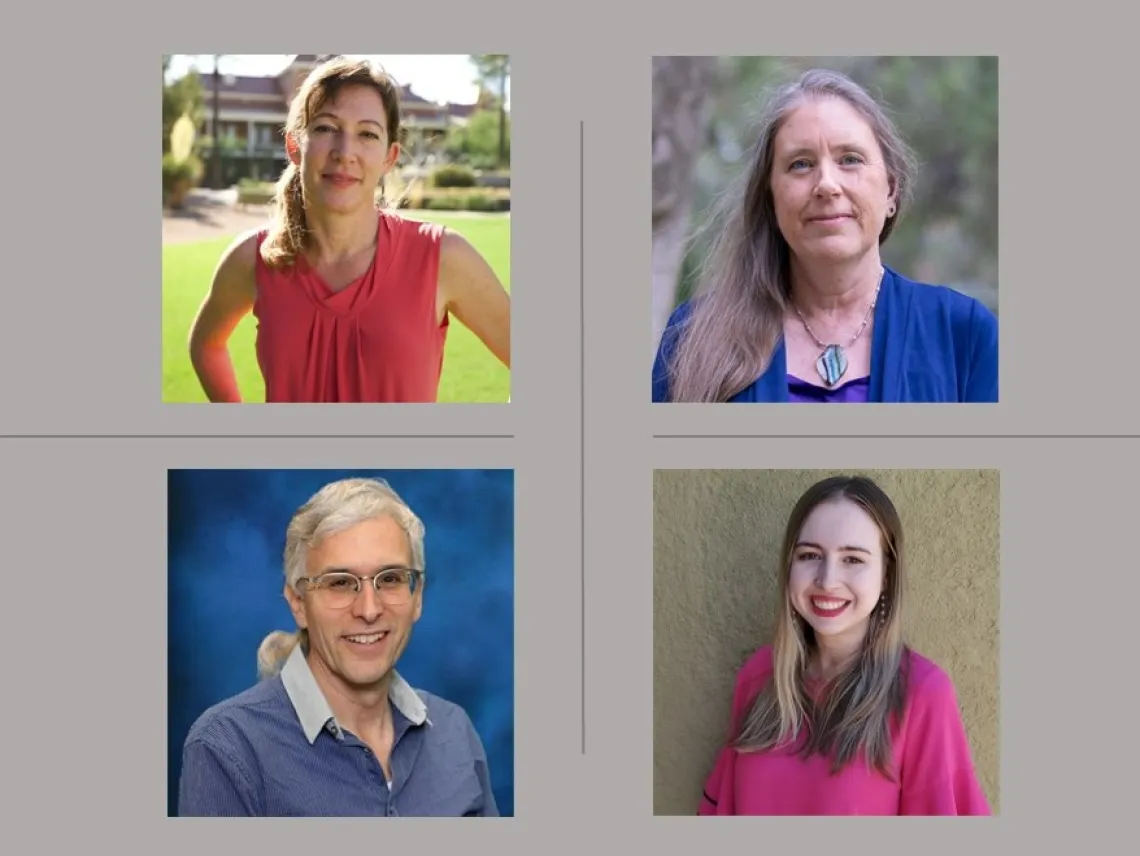
Diana Daly, Elizabeth Oglesby, Leonard Hammer, and Mairead Doery
Congratulations to the recipients of 2022 Teaching Awards for the College of Social and Behavioral Sciences! We thank them for their dedication to students and for creating innovative and impactful curriculum.
Diana Daly, Assistant Professor of Practice, School of Information
SBS Undergraduate Lower-Division Teaching Award
This award recognizes superior and innovative teaching in lower-division undergraduate courses.
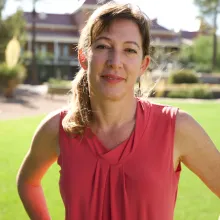
Diana Daly
Diana Daly teaches the popular general education course ESOC 150B1: “Social Media and Ourselves.” In the course, students construct and share their stories of identity and technology.
With support from the Center for University Education and Scholarship (CUES), Diana launched the iVoices Media Lab in 2020 with the goal of channeling student narratives into curricula around technology. She is also executive producer of the podcast Social Media and Ourselves, which records students’ own experiences and reflections to supplement and disrupt current scholarly understanding of social media.
“Dr. Daly’s teaching is characterized by tremendous vigor, innovation, and imagination,” wrote Professor Martin Fricke and Professor Cheryl Knott in the School of Information. “Her course has transformed how students learn and share knowledge, replacing essays with story-driven podcasts and collaborative media production and thus preparing them to thrive in the future no matter what technological and social challenges it presents.”
Fricke and Knott added, “This work has had a positive impact on hundreds of ESOC 150B1 students and has brought acclaim to the iSchool, SBS, and the University, most recently with an exciting presentation by Dr. Daly and two of her students at the inaugural SXSW Wonder House.”
As one of the judges noted, “Daly’s innovation with iVoices in 150b1 is truly amazing. Students are able to see a near-constant aspect of their lives through a critical lens in a way that reads as highly transformative.”
Elizabeth Oglesby, Associate Professor, Center for Latin American Studies and School of Geography, Development & Environment
SBS Undergraduate Upper-Division Teaching Award
This award recognizes superior and innovative teaching in upper-division undergraduate courses.
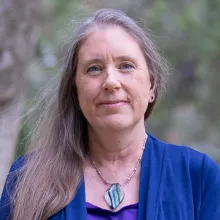
Elizabeth Oglesby
Elizabeth Oglesby, who teaches undergraduate and graduate classes focused on human rights and migration, co-taught the innovative LAS/POL/PA 356: “Indigenous Resistance in Latin America” in fall 2021.
“Liz expanded this course in a highly innovative and groundbreaking way, with an Experiential Accelerator Grant from the UArizona Office of Student Engagement that supported collaboration,” wrote Marcela Vásquez-León, director of the Center for Latin American Studies, and Margaret Wilder, interim director of the School of Geography, Development & Environment.
Oglesby co-convened the course with the Maya-Ch’orti’ Pluriversity, located in the Ch’orti’ territory spanning the Guatemalan-Honduran border. Students from both universities partnered in a research project to analyze Biden’s plan to address the root causes of migration in Central America.
Student praise for the class included: “unique and eye-opening;” “once in a lifetime experience;” “completely changed my perspective;” and “brought me joy that is difficult to describe here.”
As one of the judges noted, “The opportunity for undergrads in Oglesby’s course to interact with students from Maya-Ch’orti’ Pluriversity is truly unique. The exchange of ideas and perspectives in this course could likely be transformative for UArizona students’ perspectives on Latin America and the legacy of colonialism.”
Oglesby considers her faculty partners from the Maya-Ch'orti' Pluriversity, Jennifer J. Casolo and Jacob Omar Jerónimo, as co-winners of the award, and she will be splitting the award money three ways. “What made this teaching project innovative and award-winning was the full partnership with the Pluriversity faculty,” Oglesby said.
Oglesby added, “I hope this pilot project can be a grain of sand to help build ongoing ties between the University of Arizona and Indigenous universities in Latin America.”
Leonard Hammer, Director of Outreach and Program Development, Human Rights Practice Program
SBS Graduate Teaching Award
This award recognizes superior and innovative teaching in graduate courses.
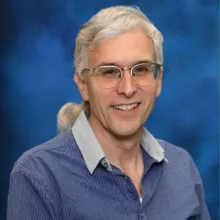
Leonard Hammer
Leonard Hammer’s courses in the Human Rights Practice Program involve student and faculty teams working hand-in-hand with community members to address real-world problems. The classes include video conference guest speakers so that students learn from human rights experts working on the ground around the globe.
In the past two years, Hammer has developed and implemented a new pedagogy called Multi-Nodal Problem-Based Learning that is “above and beyond anything that we have heard about in higher education today,” wrote William Simmons, director of the Human Rights Practice Program, and Liudmila Klimanova, assistant professor in the Department of Russian and Slavic Studies.
Using this pedagogy, the “Human Rights across Contexts” course involved 15 nodes that included six NGOs in three countries, five video conference guest lectures, students and faculty from three countries, and three working languages.
“This exemplar in leveraging the online environment hits all the touchstones of cutting-edge 21st century pedagogies,” wrote Simmons and Klimanova. “It is interdisciplinary, global, community-engaged, collaborative, hands-on learning. It involves students working on real-world problems in the way that 21st century work is done, with interdisciplinary teams working together across places and cultures to address real-world problems. The students and organizations have been unanimous in their praise of the experience.”
As one of the judges noted, “Some courses have the capacity to transform students; other courses have the capacity to transform the world. Professor Hammer’s courses appear to accomplish both, as graduate students actively take part in global human rights- and social justice-related work.”
Mairead K. Doery, Ph.D. Candidate, School of Anthropology
SBS Outstanding Graduate Teaching Assistant/Associate Award
This award recognizes superior and innovative work by a graduate teaching assistant or associate.
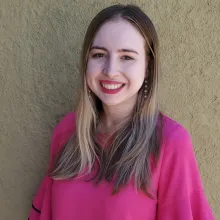
Mairead K. Doery
Mairead K. Doery is well known throughout the School of Anthropology for her dedication to student success, wrote Diane Austin, director of the School of Anthropology, and Ivy Pike, professor in the School of Anthropology.
“Mairead exhibits all the characteristics of an outstanding teacher: commitment, knowledge, thoughtfulness, inspiration, flexibility, compassion, and a desire to continue to grow and learn with her students,” Austin and Pike wrote. “Mairead has set a high bar for herself and her peers and has served as an outstanding ambassador for our graduate students and the undergraduates they teach and mentor.”
Doery has served as a GTA for two of the school’s large, Tier I General Education courses: ANTH 160D2 (Origins of Human Diversity) and ANTH 160A1 (World Archaeology).
As president of the School of Anthropology’s graduate student association, AGUA, Doery has ensured that graduate students have opportunities to develop the comprehensive range of knowledge, skills, and experiences to be effective leaders in their future careers.
Doery has pursued the University’s Graduate Certificate in College Teaching Methods and has participated in multiple online teaching trainings run by the Office of Instruction and Assessment and the Office of Digital Learning.
Doery has also been at the forefront of the School of Anthropology’s efforts to review and refresh its curriculum to most effectively address diversity, equity, and inclusion.
“As an instructor, I strive to make learning accessible, enjoyable, and rooted in the scholarship of teaching and learning,” Doery wrote. “I see my students as people before learners: they will face different challenges, but each should have an equitable chance to succeed.”

